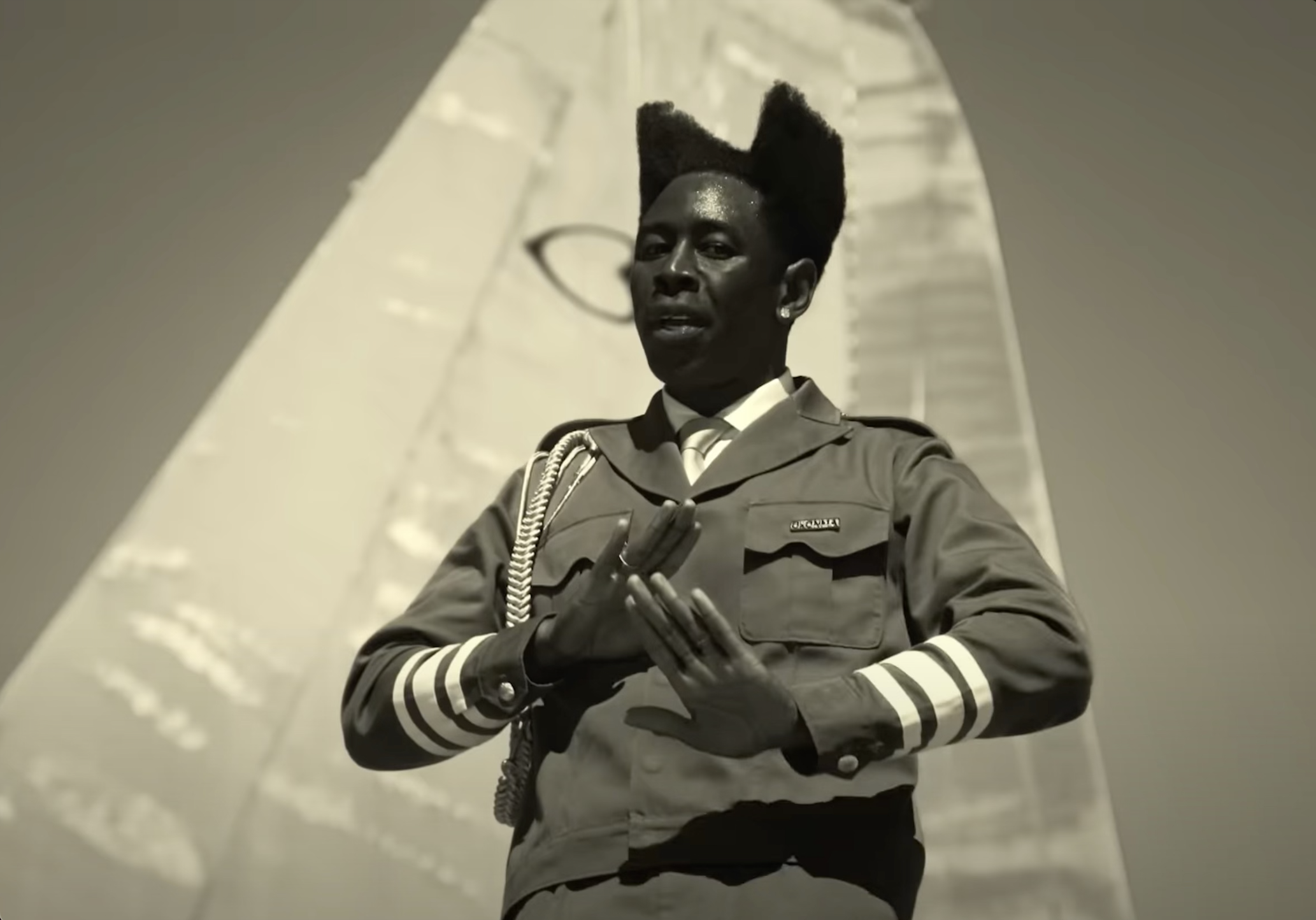By: Ian Shaiyen, Staff Writer
California rapper Tyler the Creator’s eighth studio album is here.
Chromakopia, a word created by the Nigerian American artist, is defined as, “an intense or unusual experience of color.” This is the word that the artist has chosen to entitle arguably his most prolific release yet, and it is here that Tyler is at his artistic peak.
Serving as the follow up to the braggadocious Gangsta Grillz inspired mixtape, “Call Me If You Get Lost”, this project operates as a reflective callback to the earliest days of Tyler’s artistry, with layered and often ominous production that more closely resembles the Creator’s dark, horrorcore influences on projects like “Bastard” and “Goblin”.
This is something that speaks to the artistic evolution of Tyler, who has obviously progressed as an artist/producer since his 2009 debut. Much of the production on Chromakopia operates almost like a sonic kaleidoscope, with sinister synth chord progressions and angelic choirs forming the backdrop of the album’s sonic domain.
With Tyler’s creative vision at the helm of the record, this contrast presents itself in various ways, and it particularly shows up in the album’s songwriting.
Themes of light and dark are at the core of Chromakopia, which platforms some of Tyler’s most introspective lyricism yet. Narrated by the voice of his mother, Tyler explores his upbringing and his experiences growing up surrounded by the trauma of the music industry and 21st century post-colonial america.
Throughout the album, Tyler reconciles with his African American identity, and at times Chromakopia almost feels like a self recorded homecoming concert.
On the hit track “Sticky”, Tyler (Accompanied by Glorilla, Sexxy Redd, and Lil Wayne), raps over an instrumental that sounds straight out of a Spelhouse homecoming marching band performance. Complete with trumpets, trombones and a self produced drumline, “Sticky” sounds like a rallying cry for all of the children of the African diaspora.
“Better find a mop its getting sticky in this b***”, Tyler raps.
At a performance in Atlanta on October 29th, 2024, Tyler stated that HBCUs were an immense influence on the production throughout Chromakopia, specifically referencing the city of Atlanta as a creative hub of inspiration.
This theme of unapologetic blackness is one that is exemplified throughout Chromakopia, and nowhere is it made more apparent than in standout track, “I Killed You”. In this song, Tyler confronts his identity in a different way, exploring the colonization of his African American features in a predominantly White environment.
With references spanning from African enslavement to hair relaxers and Jheri Curls, Tyler intricately weaves a tale that tackles the emotional and psychological damage that systemic racism does to the black psyche.
“Forced you to relax, you was thick, you was BB, couldn’t take the heat so you gone when you see me,” Tyler raps.
Tyler’s music has famously been associated with alternative Whiteness, with many pointing to the demographic of his early work as fictitious proof for his “Anti Black” creative persona. This conversation has largely been fueled by rumors surrounding his dating history with racially ambiguous partners, and his passive stance on the development of the Black Lives Matter movement in 2022.
It is no secret that the odyssey of Tyler the Creator has been a long journey fraught with controversy. His early work as a teenager alongside rap collective Odd Future followed him throughout the 2010s, with noticeable travel bans from countries like the UK and New Zealand
However, Tyler has famously stated that he prefers to let his music do the communication for him, and it is clear on Chromakopia that Tyler’s efforts at racial advocacy and self accountability are best expressed through song.
In sum, Chromakopia reads as Tyler’s magnum opus. Through exploring themes of self identity, Blackness and family, Chromakopia is Tyler at his most mature. While tracks like “Sticky” and “I Killed You” exemplify Tyler at his most sonically aggressive, songs like “Darling, I” and “Like Him” showcase Tyler at his most reflective. Whether he’s sing-rapping assertions over an HBCU marching band or he’s singing over distorted synths, Tyler sounds like he’s right at home on Chromakopia.
Copy Edited by A&E/Opinions Editor, Freddrell Green















